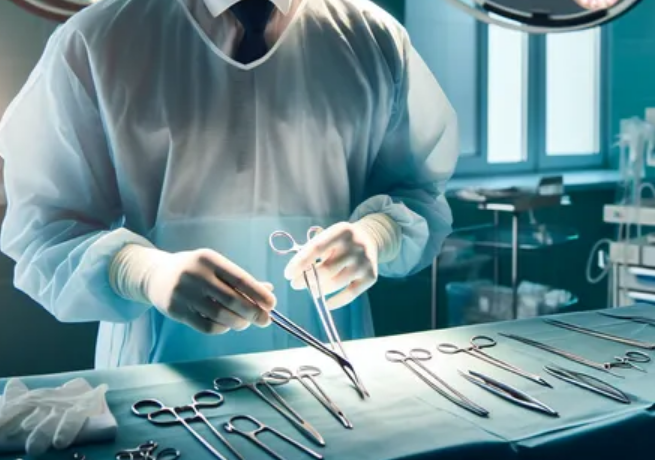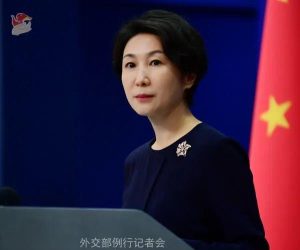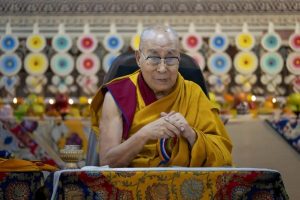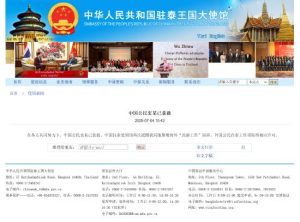China plans to expand organ transplant centers in Xinjiang, human rights groups warn: increased concerns about forced organ harvesting

The British Daily Telegraph quoted data from the international human rights organization End Transplant Abuse in China (ETAC) and reported that the Chinese government plans to build six “medical centers” with organ transplant facilities in Xinjiang by 2030, which is significantly higher than the local population needs, adding to the concerns about forced organ harvesting.
According to reports, Xinjiang currently has three “medical centers” of the same nature that can perform organ transplants. If the official decision to build such “medical centers” is taken from December last year, the number of organ transplant institutions in Xinjiang will triple in about five years. Four of the six newly built “medical centers” are located in the capital Urumqi.
The international civil “Uyghur Tribunal” held in the UK in 2019 and chaired by British barrister Geoffrey Nice determined that there are as many as 100,000 organ transplant cases in China a year, almost three times the number officially announced.
The court pointed out that there is sufficient evidence that the Chinese authorities are involved in the forced organ harvesting of detainees; forced organ harvesting sometimes occurs even when the victims are still alive. Uighurs and Falun Gong practitioners are common victims of organ hunting.
Wendy Rogers, chair of the advisory committee of Australia-based End Transplant Abuse in China (ETAC), told the Daily Telegraph that although China has a voluntary organ donation program, in many cases, the so-called “donors” are actually forced to have their organs harvested, and some of them gradually die during the process of organ removal.
Rogers believes that the new facilities to be established in Xinjiang may have the functions of both obtaining and implanting organs. Rogers pointed out that bringing people who need organs to Xinjiang for transplants would be more “cost-effective” than shipping organs to other places for subsequent processing, and would greatly reduce the time from organ removal to implantation, helping to ensure the quality of the organs.
Rogers mentioned that most Uighurs are Muslims who do not drink alcohol, so like Falun Gong practitioners, they are considered to be a relatively healthy and “ideal” source of organs.
According to China’s official 2020 national census, Xinjiang, with a population of only about 26 million, will have as many as nine “medical centers” with organ transplant capabilities. In contrast, Guizhou Province has a population of about 39 million, but only three such institutions. Xinjiang’s Uyghur population is only about 12 million.
In addition, according to official statistics, Xinjiang’s organ donation rate is significantly lower than the national average: in Xinjiang, there are 0.69 donors per 1 million people, while the national average is 4.6 donors per 1 million people. International research estimates that at least 500,000 Uyghurs are currently detained in Xinjiang.
Sayragul Sauytbay, a Kazakh doctor from the Ili Kazakh Autonomous Prefecture in northwestern Xinjiang, fled China in 2018 and exposed human rights violations in Xinjiang’s “re-education camps” to the international community. Sauytbai once taught Chinese to about 2,500 Kazakhs in the detention camp under the order of the authorities. During this period, she witnessed how the detainees were abused and raped, and she herself was also abused.
Sauytbai once revealed that the authorities carried out large-scale “health checks” in the detention camps, including blood tests. According to the results of the checkups, the detainees were classified; among them, the detainees marked with pink signs often “disappeared” quickly. Sauytbai speculated that these people might be used for organ harvesting and transplantation.
David Matas, a Canadian human rights lawyer who has investigated China’s organ hunting activities, pointed out that in the prison-like environment of Xinjiang, the so-called “informed and voluntary consent” is meaningless. Considering the institutional and systematic repression in the area, any claim of “voluntary organ donation” should be viewed with great suspicion.








